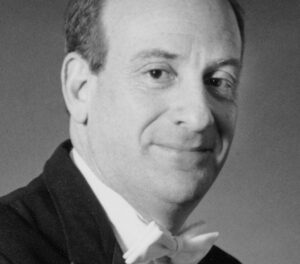The Viennese-born American pianist Anton Kuerti, who has invested a large amount of his career in Canada, played an all-Beethoven program in Reynolds Industries Theatre on Friday evening, thanks to Duke Performances’ ongoing Piano Recital series.
There was a very large audience, and the recital was a very, very big deal. For openers, at 71, this artist is very likely at the height of his interpretive powers, and little of his technical prowess has waned. He has a vast repertoire, but first and foremost he’s known – among record collectors, certainly – for his Beethoven. Of course, he comes by his skills honestly, and not without a great deal of work. In Cleveland, he studied with Arthur Loesser (the brother of Broadway’s Frank Loesser referred to himself as “the eviler of the two Loessers,” but he was one of the greatest pianist-teachers in all of music history). In Philadelphia, Rudolf Serkin was his mentor and guide. The rest of his bio was summarized in the program, for which he himself contributed the notes on the evening’s offerings – “Les Adieux,” the “Appassionata,” and the Diabelli Variations. Those annotations were in large measure lifted from notes by Kureti that were issued with his 1974-5 Toronto recordings of the complete sonatas and the Diabelli Variations as published by aquitaine, an important document of the artist’s career.
It’s curious that one of the greatest scholars of Beethoven and of sonatas in general, the late William S. Newman, of UNC, owned a set of these Kuerti recordings – indeed, at the time of Dr. Newman’s death, this was the only complete set of the sonatas in his library. His handwritten notes on the set’s printed notes reveal at once his (Newman’s) appreciation of Kuerti the artist and some misgivings about his (Kuerti’s) intellectual and artistic approaches. Newman in particular questioned the claim, perpetuated in the excerpts published at Duke, that “[t]he Diabelli Variations are Beethoven’s supreme contribution to the piano repertoire, his greatest and most extensive keyboard work, and the only piano piece that comes close to matching the incredible last string quartets both in time of composition, and to some extent, in style.” On the cover of the booklet, Newman wrote “Be careful not to give more weight to K’s notes… than actual playing – i.e., do as I do, not as I say.”
All that said, K’s playing was, in the Diabelli Variations, revelatory. He wisely gave a little 15-minute lecture-demo before the intermission, just prior to playing the Variations – actually a theme by Diabelli and 33 quite astounding variations, the whole thing lasting about 53 minutes at Duke – which was about three minutes faster than Kuerti’s mid-’70s records. With that background and the astonishing lucidity of his performance, the set emerged with all the power and radiance to which those program notes alluded, in effect demonstrating, at that moment in time, the validity of the artist’s argument. Attentive listeners – there were many present, and you could have heard pins drop in the room – were able to keep up with the evolution of the piece, and chances are nearly everyone knew, better than before, where they were in the course of the performance of music that can, in lesser hands, seem baffling, at best.
The concert began with the farewell sonata, known in German as “Lebewohl” and in French as “Les Adieux” (Op. 81a). A cell phone intruded on everyone’s concentration as Kuerti’s hands were poised for the first chord. Whether that blew some of his artistic focus it’s hard to say, but the performance seemed a bit disjointed, with too-abrupt dynamic and tempo changes – or so it seemed to this listener. In the “Appassionata” (Op. 57), Kuerti hit his stride. One of the wonderful things about this recital series at Duke is that we are getting to revisit some old favorites. The “Appassionata” is probably on everyone’s short list of faves, but when was the last time we heard it given hereabouts, live? Experiencing it as Kuerti realized it was simply wonderful. It wasn’t like hearing it for the first time, but it was as if eons of dust and grime had been washed away, permitting us to savor its manifold delights afresh.
This series continues on February 5 with a program featuring Peter Serkin (who plays the following day, too, with the Orion String Quartet). See our calendar for details.
PS Based on conversations with several other attendees, I suspect that many people at Duke were hearing Kuerti “live” for the first time – I personally don’t recall ever having seen his name in area calendars. Thus Duke’s series merits special praise for bringing this exceptional artist here for this rare and memorable program.











